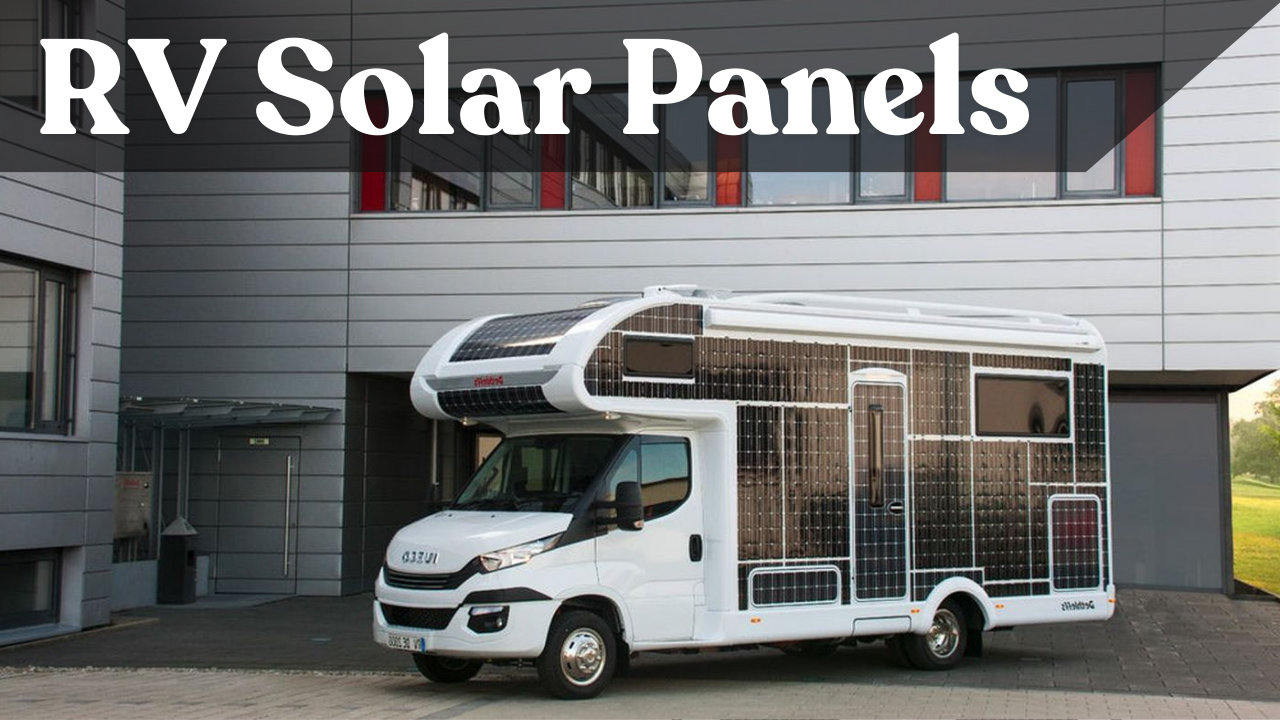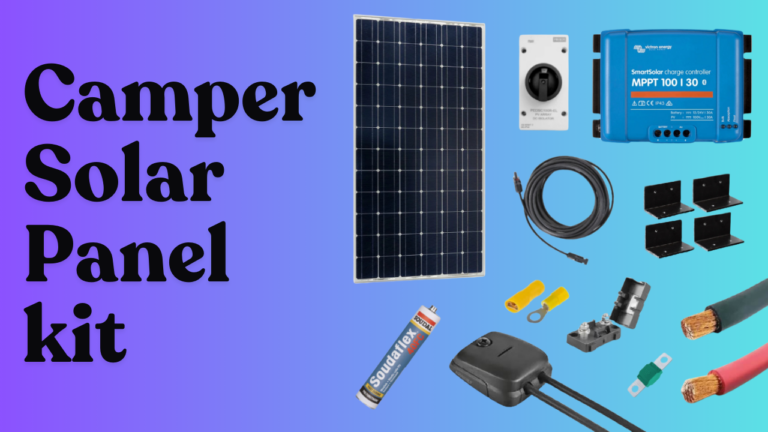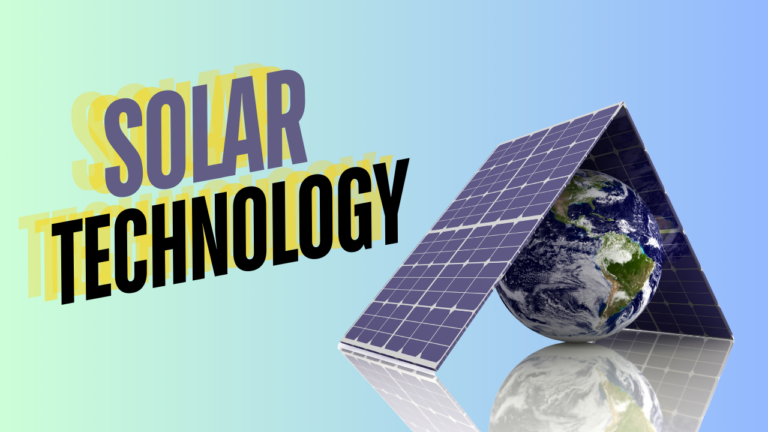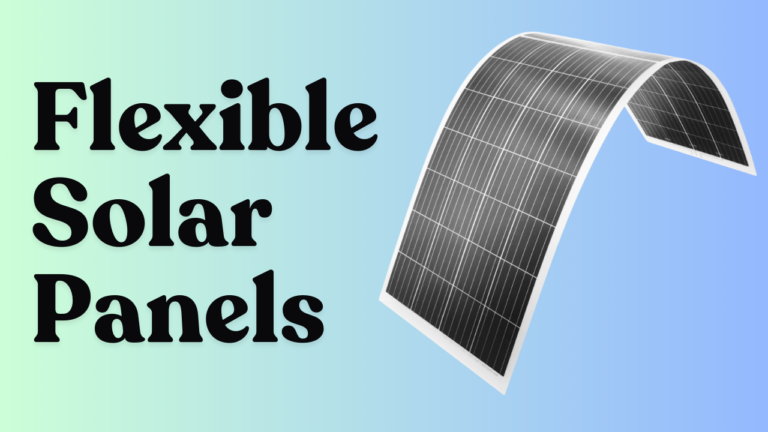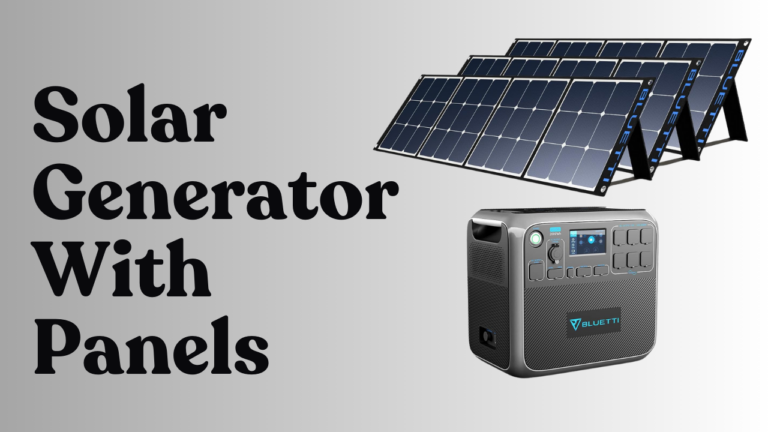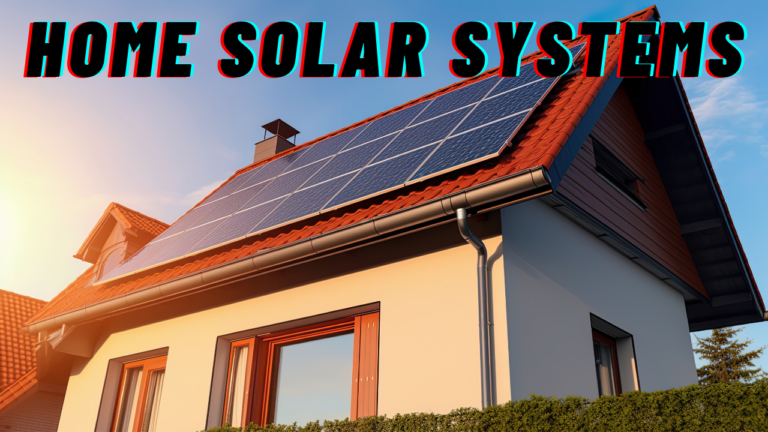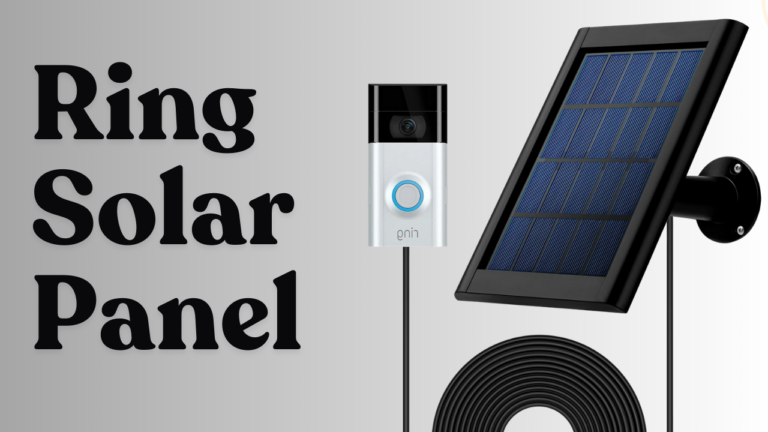RV Solar Panels: The Best Way to Power Your Adventures
Traveling in an RV is a great way to explore the world while enjoying the comforts of home. But to keep your appliances running and devices charged, you need a reliable power source.
This is where RV solar panels come in. They provide clean, renewable energy, allowing you to enjoy off-grid camping without worrying about running out of power.
Whether you’re a weekend traveler or a full-time RVer, installing solar panels on your RV can be a game-changer.
In this guide, we’ll discuss everything you need to know about RV solar panels, including their benefits, types, installation, and tips for choosing the right system.
What Are RV Solar Panels?
RV solar panels are solar energy systems designed specifically for recreational vehicles. They capture sunlight and convert it into electricity to charge your RV’s battery, which then powers lights, appliances, and other electrical devices.
With an RV solar panel system, you can generate your own power wherever you go, reducing your reliance on generators and campground hookups.
READ MORE: Ring Solar Panel
Benefits of RV Solar Panels
1. Energy Independence
One of the biggest advantages of RV solar panels is the ability to generate your own power. You don’t need to rely on campgrounds with electrical hookups or carry extra fuel for a generator. This means you can camp anywhere, including remote locations.
2. Eco-Friendly Power Source
Unlike gas generators that produce harmful emissions, solar panels provide clean energy without polluting the environment. Using solar power reduces your carbon footprint and contributes to a greener planet.
3. Saves Money in the Long Run
While the upfront cost of RV solar panels may seem high, they can save you money over time. You’ll no longer need to pay for campsite electricity or fuel for a generator. Plus, solar panels require minimal maintenance, reducing long-term costs.
4. Quiet and Hassle-Free Operation
Generators can be noisy and require regular refueling and maintenance. In contrast, solar panels operate silently and don’t require any moving parts, making them a stress-free power solution.
5. Low Maintenance
RV solar panels have a long lifespan and require little maintenance. Simply keep them clean and ensure they receive enough sunlight for optimal performance.
Types of RV Solar Panels
There are three main types of solar panels available for RVs:
1. Monocrystalline Solar Panels
- Most efficient type of solar panel
- Takes up less space, making them ideal for RV roofs
- Works well in low-light conditions
- Higher upfront cost but long-lasting and reliable
2. Polycrystalline Solar Panels
- Slightly less efficient than monocrystalline panels
- More affordable but requires more space to generate the same amount of power
- Works best in areas with plenty of direct sunlight
3. Flexible Solar Panels
- Lightweight and can be mounted on curved surfaces
- Less durable compared to rigid panels
- Ideal for temporary setups or when weight is a concern
How to Choose the Right RV Solar Panel System
When selecting an RV solar panel system, consider the following factors:
1. Your Power Needs
Calculate how much electricity you use daily by listing all the appliances and devices you plan to run. Consider their wattage and how many hours you use them per day. This will help determine how many solar panels you need.
2. Available Roof Space
Check how much space you have on your RV roof to install solar panels. If space is limited, opt for high-efficiency monocrystalline panels.
3. Battery Storage
A good solar power system includes a battery to store excess energy for nighttime or cloudy days. Choose between lead-acid batteries (affordable but heavy) or lithium-ion batteries (lightweight and long-lasting).
4. Budget
Solar panel systems vary in price. Determine your budget and find a system that offers the best value for your needs.
5. Portability
If you prefer a flexible system, consider portable solar panel kits that can be set up and taken down easily.
Components of an RV Solar Panel System
A complete RV solar power setup includes:
1. Solar Panels
Captures sunlight and converts it into electricity.
2. Charge Controller
Regulates the voltage from the solar panels to prevent overcharging the battery.
3. Battery Bank
Stores excess energy for use when sunlight is not available.
4. Inverter
Converts DC power from the battery into AC power for running household appliances.
5. Mounting Hardware and Cables
Needed for securely attaching the panels to your RV roof and connecting components together.
How to Install RV Solar Panels
Installing solar panels on your RV is easier than you might think. Here’s a step-by-step guide:
Step 1: Choose the Installation Location
Find a spot on your RV roof where the panels will receive maximum sunlight throughout the day.
Step 2: Secure the Solar Panels
Use mounting brackets or adhesive to attach the panels securely to the roof.
Step 3: Connect the Charge Controller
This prevents overcharging and protects your battery.
Step 4: Install the Battery and Inverter
If your RV doesn’t already have a battery bank, install one to store the energy. The inverter allows you to use standard AC appliances.
Step 5: Test the System
Once everything is connected, turn on the system and check the charge levels in your RV’s battery.
Tips for Getting the Most Out of Your RV Solar Panels
- Keep Your Panels Clean – Dust and dirt can reduce efficiency. Wipe them down regularly.
- Park in Sunny Areas – Make sure your panels receive direct sunlight for the best energy production.
- Use Energy-Efficient Appliances – Opt for LED lights and energy-efficient devices to maximize your power usage.
- Monitor Your System – Keep an eye on your battery levels to ensure you have enough power stored for nighttime use.
Conclusion
RV solar panels are a fantastic investment for travelers who love the freedom of off-grid camping. They provide reliable, eco-friendly power, reduce costs, and allow you to enjoy nature without relying on generators or campsite hookups.
With different types of panels available and various installation options, there’s an RV solar panel system suitable for every traveler. Whether you’re taking short weekend trips or living in your RV full-time, solar power can make your adventures more enjoyable and stress-free. By choosing the right system and maintaining it well, you can enjoy unlimited energy wherever your journey takes you!

